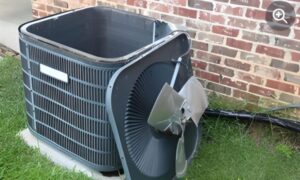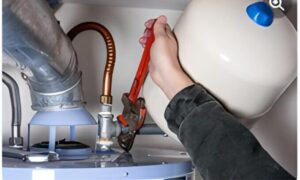As homeowners and businesses alike strive to reduce energy costs and minimize environmental impact, understanding the SEER (Seasonal Energy Efficiency Ratio) standard becomes increasingly important. The SEER rating serves as a crucial metric for evaluating the efficiency of air conditioning units, but what exactly does it entail? How does it impact energy savings and the overall performance of an AC system?
In this discussion, we will uncover the secrets behind the SEER standard, exploring its significance in achieving energy savings, and shedding light on the factors to consider when selecting an air conditioner.
So, join us as we unravel the mysteries of the SEER standard and unlock the secrets to maximizing energy efficiency in your space.
Understanding the SEER Standard
The SEER standard, also known as the Seasonal Energy Efficiency Ratio, is a crucial metric used to assess the energy efficiency of air conditioning units. It measures the cooling output divided by the total electrical energy input, providing a rating that indicates the efficiency of the unit. A higher SEER rating signifies a more efficient air conditioner.
This rating is essential as energy-efficient units with high SEER ratings can result in significant cost savings on energy bills. The U.S. Department of Energy mandates a minimum SEER rating for new AC units, ensuring a baseline level of efficiency.
When purchasing an AC unit, it is important to consider factors such as the cooling needs of your space, the size and layout of the area, and the energy-efficient features of different models. Regular maintenance and servicing of the AC unit are also crucial to maintaining efficiency, extending its lifespan, and identifying any potential issues.
In the long run, energy-efficient AC units can lead to lower utility bills, qualify for energy efficiency rebates, and reduce environmental impact. Seeking expert help and guidance from HVAC professionals can ensure that you make an informed decision and choose the best energy-efficient AC option for your home.
FACtors to Consider When Purchasing an AC Unit
Understanding the SEER standard provides a foundation for considering important factors when purchasing an AC unit. To make an informed decision, it is crucial to determine the cooling needs of your home and consider the size and layout of your space.
Research and compare different AC models and brands to find the best fit for your requirements. Look for energy-efficient features such as variable-speed compressors, as they can contribute to significant energy savings. Reading customer reviews and seeking recommendations from others can also provide valuable insights.
Additionally, regular maintenance and servicing are essential to maintain AC efficiency and extend its lifespan. Considering long-term cost savings, energy-efficient AC units can result in lower utility bills and may qualify for energy efficiency rebates.
Seeking expert help and guidance from HVAC professionals ensures a well-informed decision.
Importance of Regular Maintenance and Servicing
Regular maintenance and servicing of your AC unit are essential for preserving its efficiency and longevity. Neglecting maintenance can result in decreased efficiency over time and higher energy bills. To ensure optimal performance, schedule regular inspections and cleanings. These activities help maintain AC efficiency by keeping all components clean, lubricated, and in good working condition.
Regular servicing also helps identify and prevent potential issues before they become major problems. By taking care of your AC unit through regular maintenance, you can extend its lifespan and avoid costly repairs or premature replacement. Investing in regular maintenance and servicing is a small price to pay for the long-term benefits of energy savings and a reliable cooling system.
Long-Term Cost Savings With Energy-Efficient AC Units
Investing in energy-efficient AC units can lead to significant long-term cost savings. Energy-efficient units have higher SEER ratings, which means they consume less energy to produce the same cooling output. This translates to lower utility bills over time.
Additionally, some high SEER-rated ACs may qualify for energy efficiency rebates, providing further cost savings. While energy-efficient AC units may have a higher initial investment, the long-term savings can offset this cost.
Furthermore, these units contribute to a reduced environmental impact by consuming less energy. It is important to consider the overall lifecycle cost of the AC unit, including maintenance and servicing.
Seeking guidance from HVAC professionals can help in selecting the best energy-efficient AC options for your home, ensuring a well-informed decision.
Seeking Expert Help and Guidance
To ensure an informed decision when selecting an energy-efficient AC unit, it is crucial to seek the guidance and expertise of HVAC professionals. These professionals have the knowledge and experience to help you make the right choice for your specific needs.
Here are four reasons why seeking expert help and guidance is important:
- Accurate sizing calculations: HVAC professionals can accurately determine the size of the AC unit needed for optimal cooling in your home. This ensures that you don't end up with an undersized or oversized unit, which can lead to inefficiency and discomfort.
- Recommendations on high SEER-rated models: HVAC professionals can recommend brands and models with high SEER ratings, maximizing energy efficiency and potential cost savings.
- Expert advice: Professionals can provide expert advice on energy-efficient AC options that suit your home's specific requirements, taking into account factors such as climate, insulation, and layout.
- Well-informed decision: Seeking expert help and guidance ensures that you have all the necessary information to make a well-informed decision, ultimately leading to a more efficient and cost-effective AC unit for your home.
Frequently Asked Questions
How Is the SEER Rating of an Air Conditioner Determined?
The SEER rating of an air conditioner is determined by dividing the cooling output by the total electrical energy input. A higher SEER rating indicates a more efficient unit, leading to potential energy savings and lower utility bills.
Are There Any Specific Regulations or Requirements for SEER Ratings in Different Countries?
Specific regulations and requirements for SEER ratings vary by country. In the United States, the Department of Energy mandates a minimum SEER rating for new air conditioners. Other countries may have their own standards and regulations.
What Are Some Common Energy-Efficient Features to Look for in an AC Unit?
Common energy-efficient features to look for in an AC unit include variable-speed compressors, high SEER ratings, smart thermostats, and energy-saving modes. These features contribute to lower energy consumption, reduced utility bills, and a more environmentally friendly cooling system.
How Often Should Regular Maintenance and Servicing Be Scheduled for an AC Unit?
Regular maintenance and servicing should be scheduled for an AC unit at least once a year. This helps maintain efficiency, prolongs the unit's lifespan, and allows for identification and prevention of potential issues.
Can Upgrading to a Higher Seer-Rated AC Unit Qualify for Any Government Incentives or Rebates?
Upgrading to a higher SEER-rated AC unit may qualify for government incentives or rebates. It is recommended to consult with HVAC professionals and check local energy efficiency programs for specific eligibility and requirements.
Conclusion
In conclusion, understanding the SEER standard is essential for achieving energy savings and cost efficiency in air conditioning. Consideration of factors such as cooling needs, space size, and brand comparisons is crucial when purchasing an AC unit.
Regular maintenance and servicing are important for maintaining efficiency and preventing potential issues. By investing in energy-efficient units with high SEER ratings, long-term cost savings can be achieved, along with a reduced environmental impact.
Seeking guidance from HVAC professionals ensures informed decisions and accurate recommendations.








